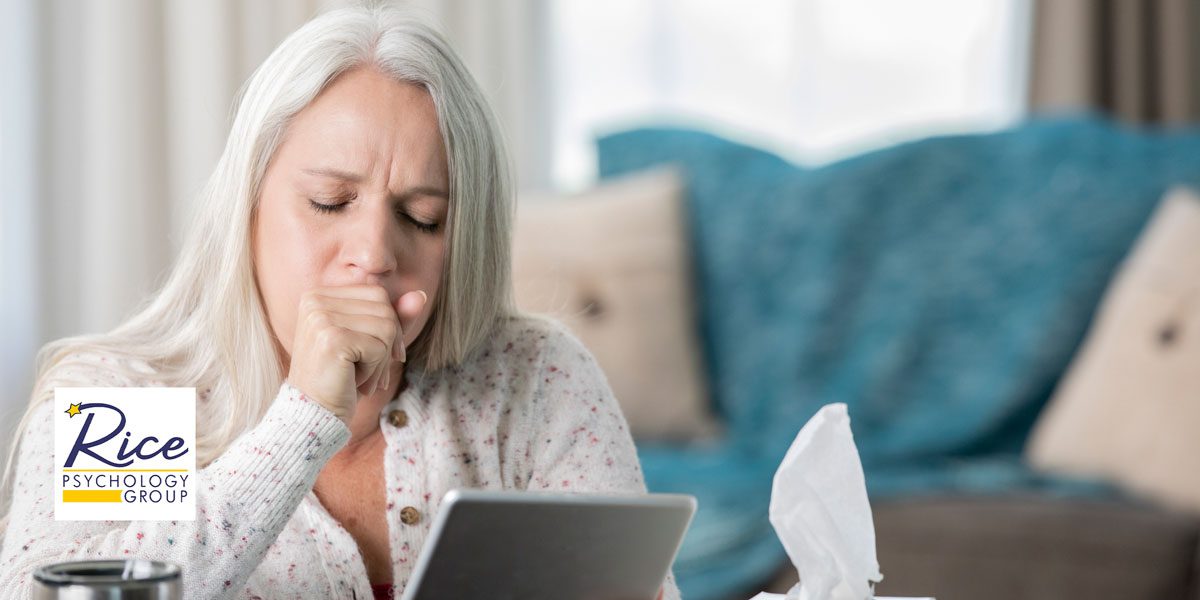Today, I was actively sweating even though I wasn’t being physically active. I was just sitting at the table drinking tea. I felt fatigued, but I’d been very active the previous day. I also felt very nauseated. Could this be a sign of COVID-19? I felt the need to check my temperature. Thoughts began running through my mind…
“Do I have a fever?”
“How about a cough?”
Typically, this behavior and these thoughts might be odd, but under our current circumstances with COVID-19 running rampant, many families are experiencing these same behaviors.
Are you in the same boat? Let’s delve deeper into the topic.

Protecting Ourselves
One of the areas I specialize in is anxiety. Before COVID-19, all of these behaviors would’ve likely been cause for further investigation, but now, many see it as part of being vigilant against the spread. So, how can we protect ourselves and those we love without causing undue stress and worry? That’s the focus of this week’s topic. How can we deal with psychosomatic symptoms (experiencing physical discomfort due to mental or emotional symptoms) and anxiety in a healthy way?
What You Can Do
The best way to handle these thoughts is by challenging them. This takes all sorts of courage and can be accomplished in several different ways:
- Look at the evidence by taking your temperature. If it’s high, then take the appropriate steps from there. If not, then move on.
- Remind yourself that just because you feel a certain way doesn’t mean it’s true. In this case, that tightness in your chest might be from the heavy lifting you did the day before. Also, feeling like a prisoner in your home doesn’t mean you actually are one. You can still go out for a jog, garden, walk the dog, and wash the car.
- Remind yourself that there are many symptoms for COVID-19, and just because you might have one doesn’t mean you have the virus.
- Focus on what you can control. You can’t control what others do. You can, however, control how you listen to the CDC’s guidelines regarding staying home as much as possible, disinfecting your hands and other surfaces, and not touching your face.
Manage Your Anxiety and Stress
Finally, one of the best ways to prevent these “symptoms” is by managing your own anxiety and stress. We know that these two emotions can lower our immunity. I know this isn’t exactly helpful news today, but by using many of the strategies that we discussed in a previous blog, it can be helpful. Limiting how much news you take in each day and challenging unhelpful thoughts are great places to start. These strategies might also include setting firm work/life/school boundaries (especially as many people are working and taking classes from home), eating well, going outside for a few minutes a day (even if it’s in your backyard or the sidewalk around the neighborhood), taking time to meditate, and being kind to yourself.
Get in Touch with Us to Talk
We understand how hard it’s been rearranging your life due to the COVID-19 pandemic. Being cooped up at home all day, every day can result in some serious emotional issues. If you need to speak to a licensed psychologist or therapist in Tampa, then feel free to get in touch with us! Since we’re practicing social distancing like millions of others in the country, we can host online sessions with you!

